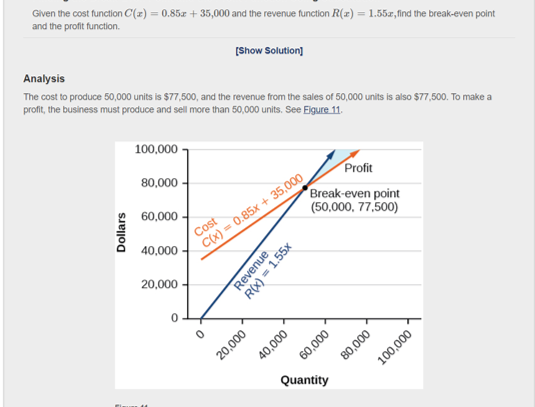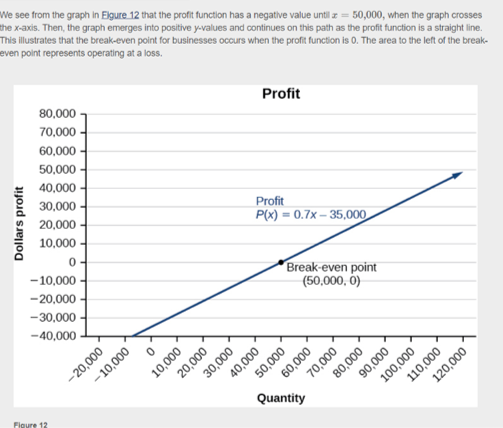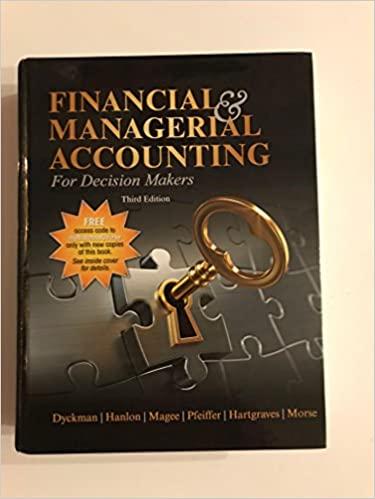Question
You will investigate profits using systems of equations. Part I: Complete the following steps: Read Example 10 shown below Use the GeoGebra tool in Canvas
You will investigate profits using systems of equations. Part I: Complete the following steps: Read Example 10 shown below
Use the GeoGebra tool in Canvas to graph the cost and revenue functions given in Example 10.
Identify the break-even point using the Intersect tool under Points. in geogebra
Part II: Based on your work in Part I, discuss the following:
Discuss the part of the graph that represents the profit.
Discuss how you found the break-even point on the graph.
If you are performing a break-even analysis for a business and their cost and revenue equations are dependent, explain what this means for the companys profit margins.
If you are solving a break-even analysis and get more than one break-even point, explain what this signifies for the company?
If you are solving a break-even analysis and there is no break-even point, explain what this means for the company.
How should they ensure there is a break-even point?
Solve the following problem: An investor earned triple the profits of what she earned last year. If she made $500,000.48 total for both years, how much did she earn in profits each year?
Write an analysis of your solution to this problem similar to the one included at the end of Example 10. Describe the graph that could model this situation. Discuss how your answer would
be affected if: The amount earned for both years was increased. The investor only earned double the profits of what she earned last year.


Step by Step Solution
There are 3 Steps involved in it
Step: 1

Get Instant Access to Expert-Tailored Solutions
See step-by-step solutions with expert insights and AI powered tools for academic success
Step: 2

Step: 3

Ace Your Homework with AI
Get the answers you need in no time with our AI-driven, step-by-step assistance
Get Started


